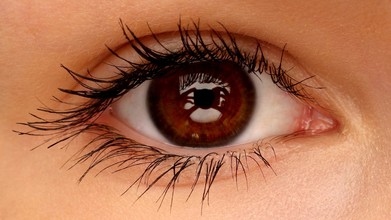- Health Conditions A-Z
- Health & Wellness
- Nutrition
- Fitness
- Health News
- Ayurveda
- Videos
- Medicine A-Z
- Parenting
- Web Stories
Poor Mental Health As Child Limits Capacity To Work In Later Life

Credit: Canva
Children in Great Britain with serious mental health conditions are two-thirds more likely to have a limited ability to work in adulthood, according to research from a leading think tank. The report by researchers at the Institute for Public Policy Research (IPPR) looked at data from about 6,000 people who took part in the 1970 British Cohort Study, which is following the lives of individuals born in a single week in 1970 across Great Britain.
The analysis found that people who had severe mental and behavioural issues as a child were 85% more likely to have symptoms of depression at the age of 51, and 68% more likely to have a long-term condition that affects their ability to work. Children with a physical health problem were 38% more likely to have limited capacity for work in later life, according to the analysis.
The government has pledged to “raise the healthiest generation of children in our history”. Labour has committed to introducing a targeted national dental hygiene programme, cutting paediatric waiting times with 2m more operations, and setting a 9pm watershed for junk food advertising.
The IPPR recommended the government safeguard spending on children and preventive spending in the NHS and other public services, and expand the role of the children’s commissioner.
In January, the Guardian reported that the number of children referred to emergency mental healthcare in England had risen by 10% in a year, with lengthy waiting lists for regular NHS care pushing more to crisis point.
Previous research by the IPPR estimated that the hidden cost of rising workplace sickness in the UK had passed £100bn a year, with employees now losing the equivalent of 44 days of productivity because of working through sickness, up from 35 days in 2018.
Amy Gandon, an associate fellow at the thinktank and a former senior government official on children’s health, said: “Successive governments have failed to face up to the long-term consequences of poor child health. If this government is serious about building a preventative state, it must act decisively to improve the prospects of our children and young people.
“What’s more, the dividends from doing so need not be decades away; the right action now, for example, for those joining the workforce within a few years, can deliver better health, opportunity and growth within this parliament.”
Dr Jamie O’Halloran, a senior research fellow at the IPPR, said: “The earlier we address both physical and mental health challenges for children, the more likely we can prevent costly health conditions and worklessness later in life. This is not just a matter of improving individual lives, but also of alleviating long-term pressures on the state.”
A Department of Health and Social Care spokesperson said: “As this report demonstrates, prevention is better than cure. That’s why this week, we expanded access to mental health teams in schools to almost an extra million children.
"We are investing an extra £680 million for mental health services, recruiting 8,500 extra mental health workers, and delivering an extra 345,000 talking therapies. Through our Plan for Change, we will tackle the mental health crisis and give every child a healthy start to life."
'Your Calves Are Your Second Heart' Doctor Reveals What Happens When You Lack Daily Movement

(Credit-Canva)
Many people have a one-dimensional view of their health, ‘if I eat healthy I don’t have to exercise as much’ or ‘since I exercise a lot, I can eat whatever I want’ but it doesn’t work like that. Everything we do and all the organs in our body are interdependent. So which body part does our heart depend on?
Most people only think about their main heart when they consider blood circulation, but there's a lesser-known helper: your calf muscles. These muscles, located in the back of your lower legs, act like a "second heart."
In a recent post, dietician Ms Manpreet Kalra, explained how important calf muscles are to our heart health.
She explained that when you walk, run, or simply move your ankles, your calf muscles squeeze. This squeezing action pushes the blood that has collected in your lower legs and feet back up towards your main heart and the rest of your body. It's a vital part of healthy circulation, preventing blood from just pooling in your legs due to gravity.
The Danger of Sitting Still
If you spend long hours sitting down—whether at a desk, on a plane, or watching TV—you essentially "shut down" your second heart. When your calf muscles aren't moving, they stop doing their job of pumping blood back up. This lack of movement leads to several problems:
Poor Circulation
When your calf muscles are inactive, they stop pumping, causing blood to start pooling in your lower legs and feet. Gravity takes over, meaning the blood has a hard time making the trip back up to your heart, slowing everything down.
Swelling and Fatigue
As blood and fluids linger in your legs, you might notice they feel heavy, tired, or appear visibly swollen. This feeling of dragging your feet is a direct result of your calves not properly assisting your body’s circulatory system.
Toxin Buildup
Normally, your blood removes waste, but when it slows down, toxins build up in your inactive muscles. These waste products are not cleaned out efficiently, which can contribute to muscle discomfort and general poor health over time.
Increased Risk of Blood Clots
The biggest danger is an increased risk of Deep Vein Thrombosis (DVT), which is when a blood clot forms in a deep vein, usually in the legs. These clots can be very dangerous if they break loose and travel to the lungs.
Simple Ways to Activate Your "Second Heart"
The good news is that keeping your calf muscles active is easy and requires only small changes to your daily routine. Movement is the key to keeping your circulation flowing and your heart safe. Here are simple actions you can take:
Move Regularly
Try to walk or stretch for a few minutes every 45 to 60 minutes if you have a desk job. Even standing up and sitting down a few times helps.
Do Calf Raises
While standing, rise up onto your toes and then lower your heels back down. Doing this simple exercise daily—even while brushing your teeth—is great for strengthening and activating your calves.
Change Positions
Avoid sitting with your legs crossed for long periods, as this can squeeze veins and restrict blood flow.
By taking care of your calves, you're not just taking care of your legs—you're helping your whole circulatory system and protecting your main heart!
This Sign Of Alzheimer's Disease That Can Show Up 25 Years Before Diagnosis: Study Finds

(Credit-Canva)
Dementia is more common than you think. According to the Alzheimer’s Disease International, there were over 55 million people in the world living with dementia in 2020. According to the organization, this number is said to double every year for 20 years, and this number is said to reach 78 million in 2030.
There are many different types of dementia, one of which is Alzheimer’s disease. It is the most common form of dementia. While there is no cure for dementia, catching it early can help people manage the condition. But with the vague symptoms of Alzheimer’s, early diagnosis is difficult.
Researchers have found a possible new sign of Alzheimer's disease that could show up incredibly early, which is poor spatial navigation. Think of spatial navigation as your brain's ability to figure out where you are and how to get where you're going, your internal GPS.
This difficulty could appear up to 25 years before the more commonly known symptoms, like losing your memory. Finding a warning sign this early is a huge step because getting a diagnosis sooner is vital for beginning treatment and for scientists working to find ways to prevent the disease.
What Does Knowing Your Surrounding Mean?
A team of scientists from the University College London (UCL) conducted a study to look for these early signs. They worked with around 100 people between the ages of 43 and 66. These people were chosen because they had a higher risk of getting Alzheimer's later in life. This risk was due to things like having a family member with the disease, carrying a specific gene (called the APOE-ε4 allele) linked to higher risk, or having risk factors in their lifestyle.
An important point to note was that every single person in the study showed no signs of Alzheimer's, they were perfectly healthy and were about 25 years younger than the age doctors would typically expect dementia to start for them.
To test their navigation skills, the participants put on virtual reality (VR) headsets and were asked to find their way around a computer-generated environment. The results showed that the people who were at higher risk for Alzheimer's had a much harder time completing the VR navigation task. They essentially got lost or struggled more to find their way.
Early Sign Of Alzheimer’s Disease
Importantly, these same people did just fine on other types of tests, including those that check memory. This suggests that having trouble with spatial navigation could be one of the very first things to go wrong in the brain, years or even decades before you start forgetting things.
The experts said that this change might be the earliest possible signal that someone is starting to move from being healthy to showing the first signs of the disease. The researchers are now planning to turn this VR test into a tool that doctors could use to help diagnose the disease earlier.
explained that these findings are exciting for two main reasons. First, they allow doctors to spot the start of Alzheimer's much sooner, which is critical for making treatments work better. Second, the VR test is based on how special cells in the brain in an area called the temporal lobe handle space and location.
This means the test helps connect the dots between tiny changes in the brain's cells and the actual symptoms people experience. This connection is a huge barrier in current Alzheimer's research.
The study also noticed that men showed a bigger drop in their spatial navigation skills than women did. This suggests that more research is needed to understand why men and women might be affected differently by Alzheimer's.
The Alzheimer's Society agreed, emphasizing that early and accurate diagnosis is essential, and this study clearly shows that problems with navigation could be one of the very first signs to watch out for.
What is the 20-20-20 Rule For Healthy Eyes?

Credits: Canva
So far, we know the 6-6-6 rule for walking, but there is something new for eye health too. It is called the 20-20-20 rule. In our day to day lives, our screen time has increased, in fact, screens have become an integral part of our life, which means we must take extra care of our eye health and this 20-20-20 rule will help you.
What Is 20-20-20 Rule?
This rule says that for every 20 minute that you spend on looking at the screen, you must take a 20 second break to look at something 20 feet away.
While you won't know how far is 20 feet from your desk, the key is not to actually stand 20 feet apart, but to take a break from your screen and be far from it, especially if you have a smaller work space and don't have the time to roam around.
You can set an alarm every 20 minutes to remind yourself for a well deserving break that you deserve.
Is the 20-20-20 Rule Supported By Research?
The American Academy of Ophthalmology says that looking at digital devices won't necessarily damage your eyesight, but it can cause strain and unpleasant symptoms. Humans usually blink around 15 times each minute, and when we stare at our screens, the frequency decreases half or a third. This is why our eyes feel dry, irritated, and we feel that our eyes are getting tired.
What Happens When You Strain Your Eye?
If you have an eyestrain, you may experience pain, tiredness, itching, burning of your eyes. Furthermore, you may experience these following symptoms:
- dry eyes
- watery eyes
- blurred vision
- double vision
- headaches
- soreness in the neck, shoulders, or back
- sensitivity to light
- difficulty concentrating
- difficulty keeping eyes open
What Can You Do To Avoid Straining Your Eyes?
Maintain proper distance: Sit about 25 inches (roughly an arm’s length) away from your screen and position it slightly below eye level.
Cut the glare: Use a matte screen filter or adjust your lighting to reduce reflections.
Take regular breaks: Follow the 20-20-20 rule — every 20 minutes, look at something 20 feet away for at least 20 seconds.
Keep your eyes moist: Use over-the-counter lubricating eye drops and consider a humidifier if the air feels dry.
Blink more often: Frequent blinking helps keep your eyes naturally lubricated.
Adjust brightness: Match your screen’s brightness to the surrounding light to minimize strain.
Clean your screens: Dust and fingerprints can make it harder to see and increase eye fatigue — wipe them regularly.
Give contacts a rest: Alternate between contact lenses and glasses to reduce dryness and irritation.
Follow lens hygiene: Always wash your hands before handling contacts and avoid sleeping in them to prevent infections.
© 2024 Bennett, Coleman & Company Limited

